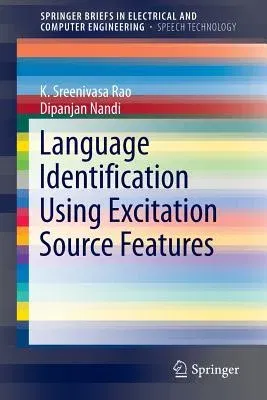K Sreenivasa Rao
(Author)Language Identification Using Excitation Source Features (2015)Paperback - 2015, 23 April 2015

Qty
1
Turbo
Ships in 2 - 3 days
In Stock
Free Delivery
Cash on Delivery
15 Days
Free Returns
Secure Checkout

Part of Series
Springerbriefs in Speech Technology
Part of Series
Springerbriefs in Electrical and Computer Engineering / Spri
Part of Series
Springerbriefs in Electrical and Computer Engineering
Print Length
119 pages
Language
English
Publisher
Springer
Date Published
23 Apr 2015
ISBN-10
3319177249
ISBN-13
9783319177243
Description
Product Details
Authors:
Book Edition:
2015
Book Format:
Paperback
Country of Origin:
NL
Date Published:
23 April 2015
Dimensions:
22.86 x
14.99 x
1.02 cm
ISBN-10:
3319177249
ISBN-13:
9783319177243
Language:
English
Location:
Cham
Pages:
119
Publisher:
Series:
Weight:
204.12 gm